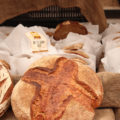
Scripture
Psalms: 55 & 138, 139:1-17(18-23)
OT: Deut. 11:18-28
NT: Heb. 5:1-10
Gospel: John 4:1-26
Reflection
Do you have a group of people in your life that you just don’t like or trust? Maybe you don’t like black people. Maybe you don’t like white people. Maybe you don’t like brown people. Maybe you don’t like straight people. Maybe you don’t like gay people. Maybe you don’t like liberal people. Maybe you don’t like conservative people. Most of us have a “people” we just don’t like.
This isn’t new. It’s pretty much the way people have been since, well, almost forever. People tend to not like people who are different from us. “Those” people are “bad.”
It was this way in Jesus day too. Jewish people and Samaritan people hated one another. They really despised each other. So, when we bump in John 4 it is as surprising a story as you will find in the whole Bible. Take a look,
Now when Jesus learned that the Pharisees had heard that Jesus was making and baptizing more disciples than John (although Jesus himself did not baptize, but only his disciples), he left Judea and departed again for Galilee. And he had to pass through Samaria. So he came to a town of Samaria called Sychar, near the field that Jacob had given to his son Joseph. Jacob’s well was there; so Jesus, wearied as he was from his journey, was sitting beside the well. It was about the sixth hour.
A woman from Samaria came to draw water. Jesus said to her, “Give me a drink.” (For his disciples had gone away into the city to buy food.) The Samaritan woman said to him, “How is it that you, a Jew, ask for a drink from me, a woman of Samaria?” (For Jews have no dealings with Samaritans.) Jesus answered her, “If you knew the gift of God, and who it is that is saying to you, ‘Give me a drink,’ you would have asked him, and he would have given you living water.” The woman said to him, “Sir, you have nothing to draw water with, and the well is deep. Where do you get that living water? Are you greater than our father Jacob? He gave us the well and drank from it himself, as did his sons and his livestock.” Jesus said to her, “Everyone who drinks of this water will be thirsty again, but whoever drinks of the water that I will give him will never be thirsty again. The water that I will give him will become in him a spring of water welling up to eternal life.” The woman said to him, “Sir, give me this water, so that I will not be thirsty or have to come here to draw water.”
Jesus said to her, “Go, call your husband, and come here.” The woman answered him, “I have no husband.” Jesus said to her, “You are right in saying, ‘I have no husband’; for you have had five husbands, and the one you now have is not your husband. What you have said is true.” The woman said to him, “Sir, I perceive that you are a prophet. Our fathers worshiped on this mountain, but you say that in Jerusalem is the place where people ought to worship.” Jesus said to her, “Woman, believe me, the hour is coming when neither on this mountain nor in Jerusalem will you worship the Father. You worship what you do not know; we worship what we know, for salvation is from the Jews. But the hour is coming, and is now here, when the true worshipers will worship the Father in spirit and truth, for the Father is seeking such people to worship him. God is spirit, and those who worship him must worship in spirit and truth.” The woman said to him, “I know that Messiah is coming (he who is called Christ). When he comes, he will tell us all things.” Jesus said to her, “I who speak to you am he.” (John 4:1-26, ESV)
There is a lot going on in this story. A whole lot! But what I want to draw your attention to is Jesus willingness to break the societal and cultural norms to engage with someone different from himself.
His interacting with the Samaritan Woman was so shocking that she couldn’t even believe it. She was flabbergasted. It didn’t make any sense whatsoever to her. This Jewish man was talking to this Samaritan Woman, what in the world! This woman was probably also a woman of ill repute since she was drawing water in the heat of the day. All these layers of brokenness and shame, yet, Jesus spoke to her.
The story closes with Jesus doing something that he didn’t do in the Gospels, he revealed himself to her as the Messiah. Why her? Why in this place? What is Jesus doing?
The gospel knows no barriers to its extent. The kingdom of God is not a Jewish-only kingdom. No, the kingdom of God is universal. It destroys barriers between people. In this moment we are seeing Jesus carrying out the ministry of reconciliation. Through the cross and resurrection he would ultimately reconcile to whole of the creation, but here in this moment, he is reconciling one broken woman to her God.
For Jesus, there was no “us” and “them.” There was only his Father’s kingdom. He stepped across and engaged with “the other.”
Who is your “those people”? Pray that God would open the door to relationship with them. Maybe, as an ambassador for Christ, you can help bring reconciliation?



